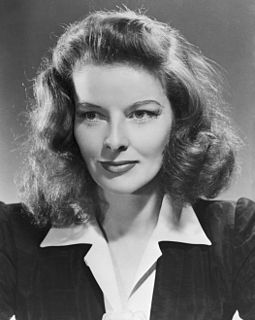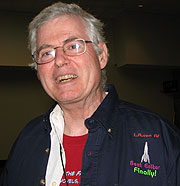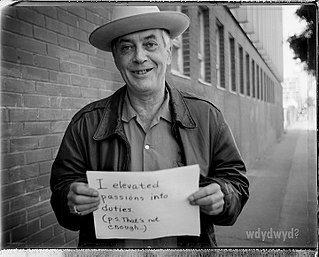A Quote by Philip Pullman
Literary modernism kind of grew out of a sense that, “Oh my god! I’m telling a story! Oh, that can’t be the case, because I’m a clever person. I’m a literary person! What am I going to do to distinguish myself? I know! I’ll write Ulysses.”
Related Quotes
The moment in the account of Adam and Eve in the book of Genesis is when they realize they're naked and try and cover themselves with fig leaves. That seemed to me a perfect allegory of what happened in the 20th century with regard to literary modernism. Literary modernism grew out of a sense that, “Oh my god! I'm telling a story! Oh, that can't be the case, because I'm a clever person. I'm a literary person! What am I going to do to distinguish myself?...a lot of modernism does seem to come out of a fear of being thought an ordinary storyteller.
After modernism, things changed. Indeed, modernism sometimes seems to me like an equivalent of the Fall. Remember, the first thing Adam and Eve did when they ate the fruit was to discover that they had no clothes on. They were embarrassed. Embarrassment was the first consequence of the Fall. And embarrassment was the first literary consequence of this modernist discovery of the surface. "Am I telling a story? Oh my God, this is terrible. I must stop telling a story and focus on the minute gradations of consciousness as they filter through somebody's.
All I am in private life is a literary critic and historian, that's my job...And I'm prepared to say on that basis if anyone thinks the Gospels are either legends or novels, then that person is simply showing his incompetence as a literary critic. I've read a great many novels and I know a fair amount about the legends that grew up among early people, and I know perfectly well the Gospels are not that kind of stuff.
I thought, can you think of any really good reason not to do it? Except that, oh, I'm so shy, or oh, my private life, or oh, are they going to find out how boring I am? You know? And that was the only reason now, in a sense, not to do television. Because it certainly is a method of expression, which has to be accepted as these things come along.
I'm a storyteller, I'm not a literary writer, and I don't want to be a literary writer. People say to me, "Oh, when are you going to write something different?" What? I don't want to write anything different. I'm writing relationships between people, all different colors, all different sizes, all different sexual orientations, and that's what I want to do.
[Michael] Chabon, who is himself a brash and playful and ebullient genre-bender, writes about how our idea of what constitutes literary fiction is a very narrow idea that, world-historically, evolved over the last sixty or seventy years or so - that until the rise of that kind of third-person-limited, middle-aged-white-guy-experiencing-enlightenment story as in some way the epitome of literary fiction - before that all kinds of crazy things that we would now define as belonging to genre were part of the literary canon.
I myself, as I'm writing, don't know who did it. The readers and I are on the same ground. When I start to write a story, I don't know the conclusion at all and I don't know what's going to happen next. If there is a murder case as the first thing, I don't know who the killer is. I write the book because I would like to find out. If I know who the killer is, there's no purpose to writing the story.
Sometimes I'll go for something more because of the story, or more because of the director. But, generally, I have to feel like it's something that I have a real sympathy for - a person that I can completely go, "Oh, wow, oh, I'm there." Otherwise I don't feel like I will be able to pull it off at all. I know I haven't done everything very well in the past; some things have worked and some things haven't. But I need to feel like I can feel about the person, understand that person, I suppose.
If you're on a date and somebody comes up and says, "Oh, I loved you in Harry Potter," it's a bit weird, because you suddenly start thinking, "Oh, God. Is this weird for the other person I'm here with, or is this weird for my family?" But generally speaking, I don't really think because I was thrown into it so young and kind of always had that, it's just something you get used to. And most of the time... It was interesting.


































